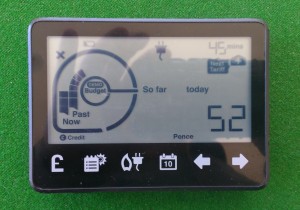Smart Meters: the basic guide for private tenants
If you’re a tenant in a privately rented house, you might have been offered a smart meter by your electricity or gas supplier or your landlord might be talking about having one fitted. Here is everything you need to know about what smart meters mean for you.
Do you live in a shared house? Download these different Smart Meter guides:
- Smart meter guide for tenant sharers who pay their own energy bill
- Smart meter guide for tenant sharers whose landlords pay their energy bill
- Smart meter guide for tenants living in bedsits or studio flats with their own pre-payment meters
Tell us how useful you found this information
– complete our evaluation survey
What is a smart meter?
A smart meter is a modern electricity or gas meter that sends automatic readings to the energy supplier – removing the need for estimated bills or for meter readers to visit the home regularly. Every home in the country will be offered a smart meter to replace their existing gas and electricity meters, between now and 2020.
What is the in-home display?
Every smart meter is issued with an in-home display device (see image right – one device per home for both electricity and gas use) which enables the household to track energy use and energy expenditure in their home.
– one device per home for both electricity and gas use) which enables the household to track energy use and energy expenditure in their home.
What are the advantages of a smart meter?
The main advantage of the smart meter is more accurate bills. The in-home display makes it easier to manage and control costs of energy in the home. In time, it will be possible to connect smart meters to different advanced (“smart”) energy services that can help reduce bills further (for example by offering discounts depending on the time of day that you use energy).
For pre-payment customers, smart meters can offer a wider range of pre-payment methods. When customers switch from paying their energy bills on a contract to pre-payment, there will also be no need to change the meter, as there is currently.
How much does a smart meter cost?
There is no charge for having a smart meter fitted (though the costs of the overall roll-out will be borne by all energy customers).
When will I get a smart meter?
The installation of smart meters is undertaken by energy suppliers with their own customers. Different households in the same neighbourhood will therefore be offered smart meters at different times between now and 2020.
Who decides whether to get a smart meter installed in rented properties?
Gas and electricity meters belong to the energy supplier. It is the bill-payer’s decision whether or not to replace the existing gas and electricity meters with smart meters. The bill payer can contact the energy supplier to ask for the smart meters to be fitted, or the supplier may contact the bill payer.
Therefore, if you are the energy bill payers, it is your decision whether or not to have smart meters installed. However, you may be in breach of tenancy agreements if this happens without your landlord’s consent – it is important in all rented situations therefore that both tenants and landlords are happy to have the meter installed.
The energy company will need access to your property to install the meter.
Can my landlord use the smart meter to monitor my energy use?
Not unless the landlord pays the energy bills, in which case they will be sent bills linked to how much energy you have used, as is the case now.
As part of the installation process, the bill payer will be given an in-home display device to help them monitor energy use in detail. This is wirelessly linked to – and locked to – the meters in that property. It o only has a range to cover the house and its immediate vicinity. Accordingly, it is only useful for tenants to track their own energy use (it’s range is not sufficient for it to be used by landlords to monitor energy use remotely).
Can a meter be moved at the time of the smart meter installation?
Yes, you can ask for the meter to be moved, but you will need to make sure your landlord is happy to pay any costs resulting from this. If the smart meter installer says they need to move the meter to fit it correctly, then the energy supplier may consider bearing the cost (suppliers are obliged by their regulator to make reasonable efforts to install smart meters).
What about if we lose the in-home display (IHD)? Can it be replaced? How much will this cost?
Different energy suppliers will make different arrangements (cost etc) for the replacement of lost IHDs. If you are a tenant paying the energy bills it is your responsibility to look after the IHD. If you are paying the energy bills then be sure to pass the IHD to the next tenants when they move in. Your IHD is locked to your home: it won’t work in any future properties you move to.
Tell us how useful you found this information – complete our evaluation survey